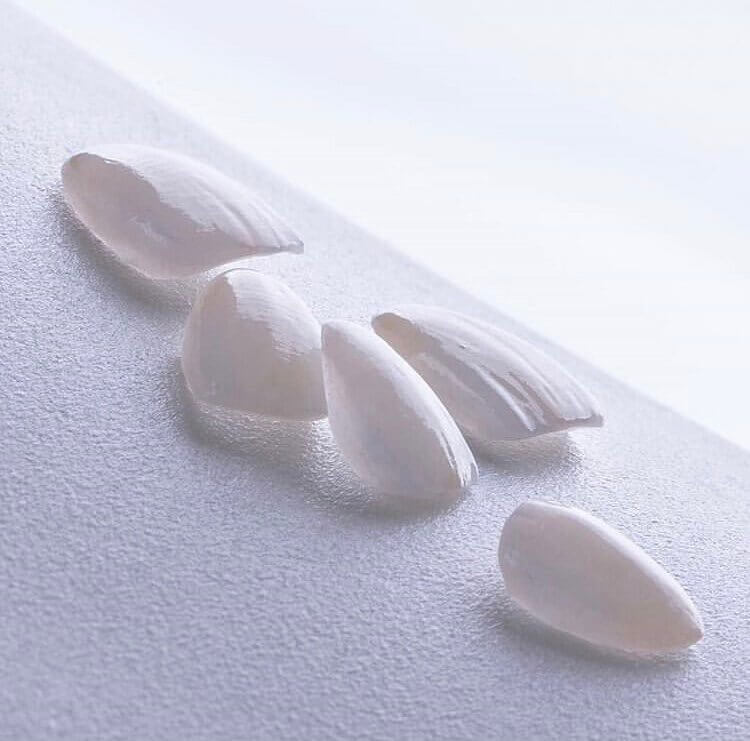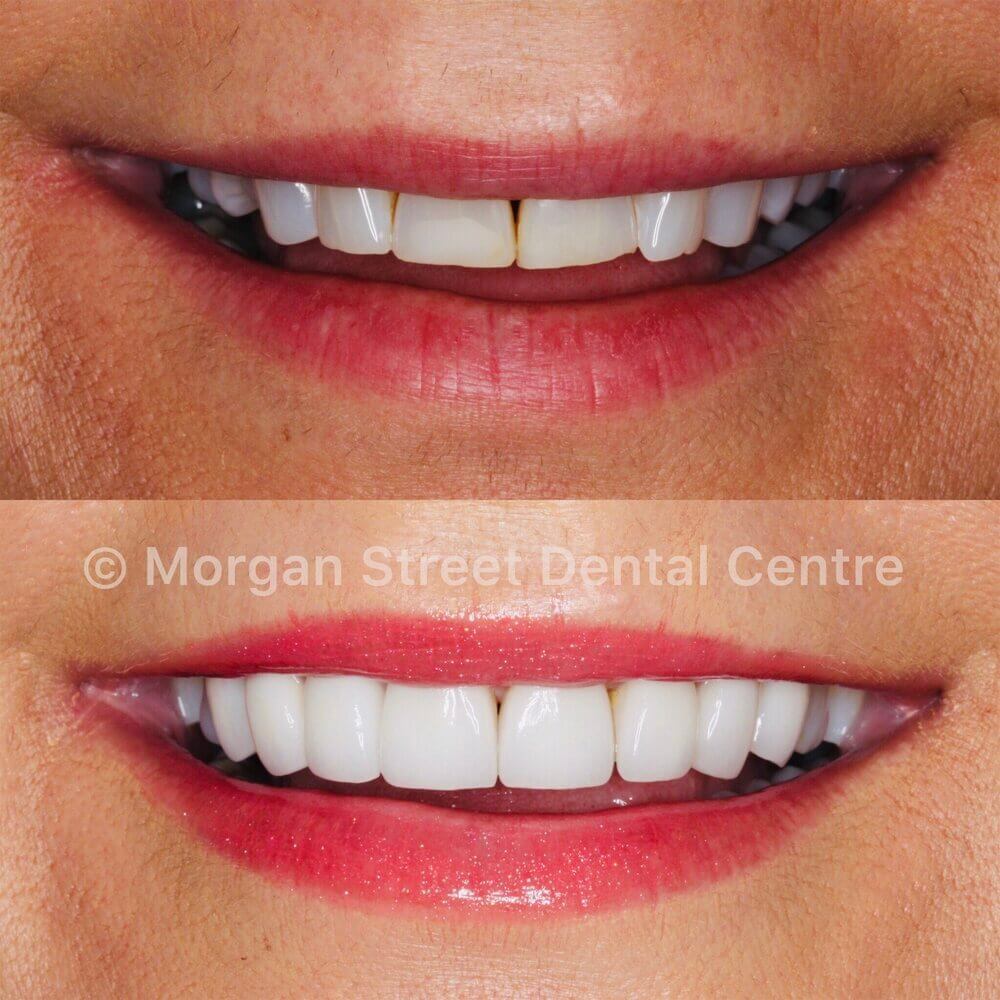What are Dental Veneers?

Dental veneers are thin, tooth-colored shells that are attached to the front surface of teeth to improve their appearance. They’re often made from porcelain or resin-composite materials and are permanently bonded to your teeth.
Veneers can be used to treat a number of different cosmetic concerns, including chipped, broken, discolored, or smaller-than-average teeth.
Some people may only get one veneer in the case of a broken or chipped tooth, but many get between six to eight veneers in order to create an even, symmetrical smile. The top front eight teeth are the most commonly applied veneers.
What are the benefits of dental veneers?
The biggest benefit to veneers is improving the appearance of your teeth, giving you a brighter and more even smile. Dental veneers are often used to treat the following cosmetic occurrences:
- broken or chipped teeth
- severe discoloration or uneven coloring that can’t be fixed with whitening
- gaps in the teeth
- smaller-than-average teeth
- pointed or unusually shaped teeth
Veneers can last for more than a decade, depending on the type of veneer you choose, making them a semipermanent investment that can make you more confident in your smile.
How to prepare for your appointment
Before you get your veneers, you’ll have a preliminary appointment with our Wagga dentist to discuss which options are right for you and how many veneers you want to have placed. In some cases, if teeth are crooked or uneven, you may need to have braces before your dentist can place the veneers.
Your dentist will often take X-rays at this stage to evaluate your teeth’s health. They’ll look for signs of tooth decay, gum disease, or the need for root canals. If you have any of these conditions, you may not be a candidate for veneers.
To get accurate sizing for your veneers, at your veneer preparation appointment, your dentist trims down about a half a millimetre of your tooth before they take a digital scan of your teeth. This scan is then sent off to the lab for the creation of your porcelain veneers.
Before you leave the surgery, your dentist puts temporary veneers on your teeth so your teeth stay protected before the permanent veneers are ready to be fitted.

How are veneers put on teeth?
It typically takes up to several weeks after your dentist prepares your teeth to get your veneers back from the lab.
Once your veneers are in, you can schedule an appointment to have them placed. At this appointment, your dentist evaluates the fit, shape, and coloration of the veneers to make sure they’re perfect for you.
Next, your dentist thoroughly cleans your teeth. This is important, as it keeps bacteria from being trapped under the veneer and causing decay. After they do this, they use the grinding tool to create a rougher texture on each tooth on which a veneer is to be applied. This makes it easier for the veneer to stick to the tooth.
Your dentist then uses a dental cement to bind the veneer to the tooth. They’ll use a special light to harden this cement quickly, and once you leave the office, your new smile is ready to go!
This second appointment (where veneers are placed) typically doesn’t last longer than the first appointment, though it might be an extra thirty minutes if a local anaesthetic is used.
How to take care of your veneers after they’re placed
Unlike other dental procedures, the recovery process doesn’t take an extended amount of time. Instead, once the veneers are cemented on and any anaesthetics wear off, you can eat and chew as you normally would. While the anaesthetic is wearing off, be conscious of not chewing on your cheeks or tongue.
In some cases, immediately after the veneers are applied, you may notice that they feel a little rough. These rough spots (usually from extra cement that can adhere to the veneer) wear down after several days of normal eating and teeth brushing; if they don’t, your dentist can smooth them out.
Traditional porcelain veneers typically last between 10 and 15 years, and composite veneers last around 5 to 7 years. Taking certain precautions can help make sure that you get the longest lifespan out of them possible.
-
Don’t chew on hard objects like pens, ice, or your finger nails.
-
Never use your teeth to open packaging or condiment packages.
-
Try not to chew with your front teeth. Eat harder foods with your back teeth only; cut up hard foods like chocolate bars so that this is possible.
-
If you grind or clench your teeth at night, get a splint or retainer to protect your veneers.
-
If playing sports, you must wear a mouth guard.
Keep in mind that each patient is unique and your results may vary. Photos in our online gallery are of actual patients of our practice who have provided consent to display their pictures online. Any procedure carries risks. Before proceeding, call us on 69219500 or make an appointment to see one of our Wagga dentists for an opinion.
